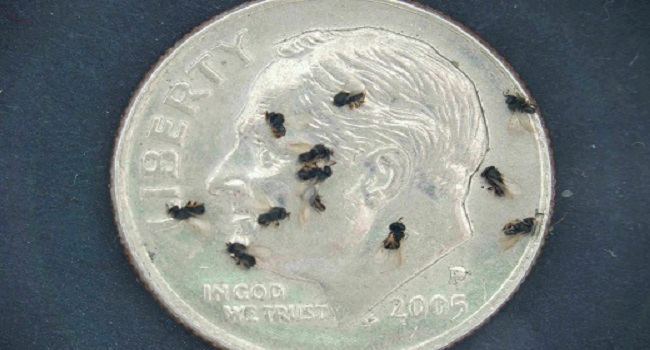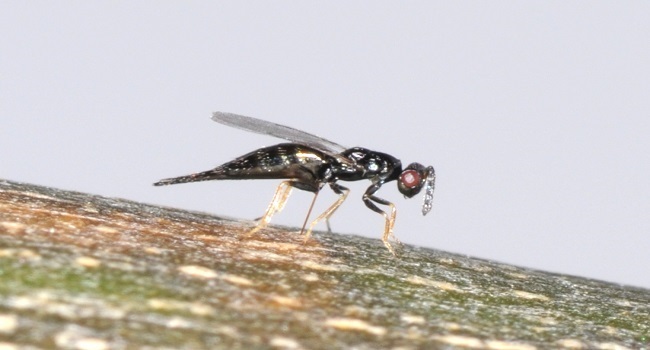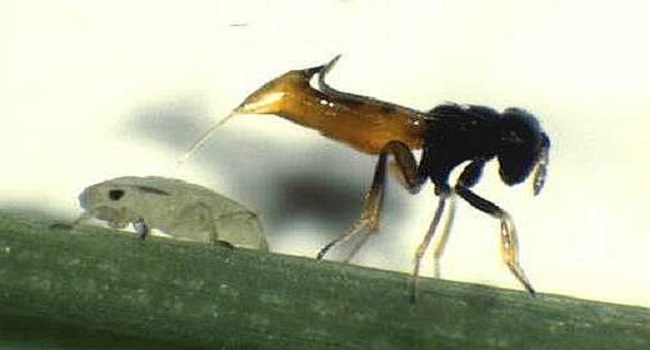Photo Carousel Links
The Beneficial Insects Introduction Research Unit conducts research to help manage invasive insect pests by introducing effective natural enemies from the pest’s native range. This approach (classical or introduction biological control) can lead to permanent reductions in pest populations.
The dime shows the tiny size of Trissolcus japonicus (the samurai wasp), an egg parasitoid of the brown marmorated stink bug. It has become established and is spreading in the U.S. and is expected to help reduce populations of stink bug.
We provided essential quarantine services for ARS CRIS projects as well as several ARS cooperators. These activities included receipts of a total of 131 permitted consignments, consisting of 16607 pest specimens, and 1298 parasitoids in 10 genera, and sending 31 outgoing shipments with 17913 pest specimens, and 331,563 parasitoids in 5 genera.
Emerald ash borer threatens to kill millions of ash trees unless controlled. One of the exotic natural enemy candidates is Tetrastichus planipennisi, a parasitic wasp that has widely established in the introduced areas, causing 36 – 85% parasitism in ash saplings.
A parasitic wasp, Aphelinus asychis, laying an egg in the Russian wheat aphid, Diuraphis noxia, a pest of wheat and barley in the western USA. This pest is for the most part under control with a combination of resistant plant varieties and biological control by another parasitic wasp, Aphelinus atriplicis, that we introduced from Europe to control this aphid.
Photo by Professor Angela De Farias.
AgDay at UDel - Our insects generate lots of curiosity from stakeholders
Mission
Our mission is to import, quarantine, test, ship, release and establish exotic natural enemies (parasites and predators) of insect pests, using classical biological control approaches, and to investigate, model, and predict the interactions of pest and beneficial species. The Laboratory houses a quarantine facility where beneficial insects from abroad are received and processed to detect and eliminate undesirable secondary parasites. The laboratory's efforts have traditionally been directed against insect pests of foreign origin. After receiving natural enemies from the native home of the invading species, the beneficial insects are colonized in the United States to control the pest. Once established, these natural enemies are self-perpetuating and control the invasive host without further cost.






